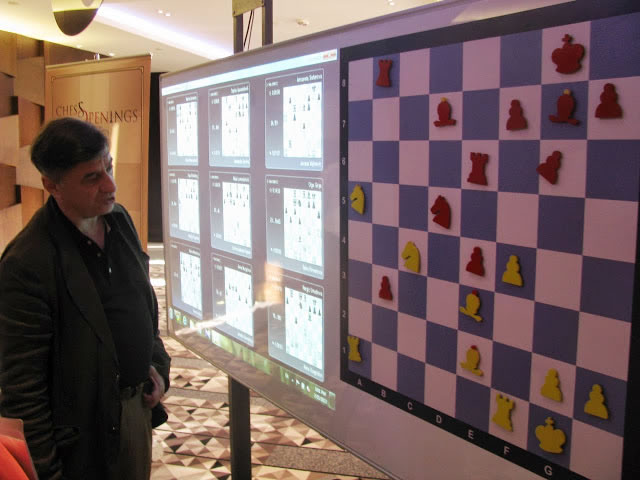Interview with Grandmaster Ljubomir Ljubojevic - Chess now and then, through the prism of technology, physics and philosophy - part 3
Interview - part 1
Interview - part 2

Nadezda Stojanovic
You were a player of attractive style. Even nowadays in analyses you seem to suggest moves which others don't see. Many people respect you for this.
Ljubomir Ljubojevic
I wouldn't say so. Every person has their own moment of lucidity. Even a chess player who is objectively considered as a weaker player can have ingenious ideas. The only question is if he will use that moment of lucidity to make a good result worth of that ingenious idea. During my chess development, when there were no computers to rely on their suggestions, I was trying to get to know the secrets of chess with all my being and capacities I had. There is a difference when you see some picture on the screen, and you remember it, or when you come to that picture by deduction and logical thinking.
Today computers are undeniably very useful, for development of chess, science and other activities. But, according to my opinion, they have one deficiency, and that is they suppress some part of the intuitive talent in humans. I stand behind the opinion that for humans it is very important to have both types of thinking: rational and abstract. They are interdependent. Computers support the development of rational thinking, which has mathematical character. But, if a human does not cherish abstract thinking as well, I think even God will be angry at them!
Nadezda Stojanovic
We have often witnessed that the computer makes mistakes in evaluating the positions, although they are designed to help humans in solving problems.
Ljubomir Ljubojevic
It is unlikely that the computer will make a mathematical error, while a human is much more susceptible to this. On the other hand, for the computer it is much more difficult to find a strategic or even philosophical solution to a certain question, while for a human, that is much easier. Let's not forget that the computer was made by humans, who imprint the information, principles and operational possibilities, which is what makes computers so popular nowadays.
It seems to me that, no matter how powerful allies of today's life computers are, they won't be able to completely control people. I believe that surrending to the powers of computers is a great danger of modern life. However, it is more likely that people will be the ones who will restrain this excessive dependence on computers.
Nadezda Stojanovic
Considering that human thought will develop, and therefore computers will also develop, do you think one day chess will be resolved? Is that possible?
Ljubomir Ljubojevic
In practice, that is very difficult, but theoretically it is possible. Chess is mathematically limited, with its board and the movement of its pieces. If we take all this as a limit, then it is possible that one day computers will be able to find solutions on the chess board in a much faster way.
But, let's not forget that computers and its programmes have a dynamic character and that they constantly seem to make progress. For me, this raises the question: does dynamics always win in chess? I am of the opinion that in the universe apart from dynamics and constant movement, there are moments when statics dominates over dynamics, because in philosophical thought statics can defeat dynamics! What will happen with the computer which recognizes dynamics as the supreme power? Let's not forget that in chess there are zugzwang positions in which the one who is about to make a move often loses, which is completely contrary to the basic principles of eternal movement. If there are opposite forces in the nature, such as light and darkness, action and reaction, positive and negative, is it so hard to imagine that there is no balance between statics and dynamics? We know that energy is indestructible and that it can only change its forms, so why then some of these forms wouldn't occur in the previously mentioned examples?













